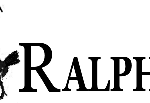
 (I’ll be traveling to St. Louis Wednesday, so I’m prepping this edition Tuesday evening.)
(I’ll be traveling to St. Louis Wednesday, so I’m prepping this edition Tuesday evening.)
According to the poem, “Wednesday’s child is full of woe.”
Today’s sample of stories fits the bill.
 There’s an all-out reactionary assault against the evil leviathan Amazon which, unfortunately, is manifesting itself as a foolish defense of the greater evils of incompetence and irrationality.
There’s an all-out reactionary assault against the evil leviathan Amazon which, unfortunately, is manifesting itself as a foolish defense of the greater evils of incompetence and irrationality.
Galley Cat and the New York Times are mistakenly puffed up about the idea that Amazon misinterpreted George Orwell by quoting him out of context, ignoring the fact that the full quote not only says essentially what Amazon said it did—that “Orwell was suggesting collusion” (if only sarcastically). Check it out for yourself. It’s incredible how invested partisanship can blind you to what’s right in front of your eyes. And, NYT’s in-depth analysis of Orwell’s position on paperbacks, showing that he believed they would hurt publishing as a whole, was proved wrong by history.
Quite ironically, Amazon’s bashers accuse the company of behaving like Orwell’s Ministry of Truth simply because Amazon uses technology (Did these people even read Ninety-Eighty Four?) while they mimic MiniTruth’s tactics, tacitly rewriting inconvenient history by not pointing out how low-cost paperbacks actually made books available to a broader spectrum of readers and amenable to many more reading opportunities than hardbacks. Orwell’s sarcasm about collusion was more on-point than his economics.
But, never mind all that when you can shout “gotcha!” and pretend you caught Amazon with their pants down.
Inveterate Amazon-basher Melville House is reduced to truly desperate attempts to deny the complexity of the situation, boldly claiming that “everything else is irrelevant” when compared to Amazon’s profits and power. I agree that Amazon’s dominance is problematic, but when you have to suppress or misrepresent the other side’s evidence and arguments, it’s pretty much a confession that you don’t have a logical leg to stand on.
Which nicely segues into the most egregiously inane slash-piece against Amazon lately, a quasi-viral piece in the Los Angeles Times, wherein Carolyn Kellogg punches her way through a squad of straw men while pretending to pick apart Amazon’s position.

When I read that Ralph Lauren was … okay, before I even got to what he was doing, I remembered that his real name is Ralph Lifshitz. I’m sure Mr. Lifshitz is a great guy, and I like his clothes alright. But that is a funny name.
But, when I read that Ralph Lifshitz Lauren was starting a children’s literacy program—which is a wonderful thing and kudos to Mr. L!—I still couldn’t help thinking that this odd thought would be a cool logo for the program:


 Writers of historical fiction can have a rough time with authenticity. You can scour through pages of historical research and original sources, and even then you can be left asking yourself: Am I really getting into the lives of these people?
Writers of historical fiction can have a rough time with authenticity. You can scour through pages of historical research and original sources, and even then you can be left asking yourself: Am I really getting into the lives of these people?
The New York Times recently clued us in to an effort to preserve one remarkable source of information about the real lives of historical people: the records stored in old churches. According to the evocatively named Dr. James Fenimore Cooper, who is a professor of history at Oklahoma State, “There is no other discrete set of sources that will similarly transport us into colonial America.”
And what sorts of details do you find in those sources? Continue reading
 In yet another absurd chapter of an absurd story that has inspired a firestorm of poorly thought-out spin, Amazon has had to do basic profit analysis to explain to the bumbling Hachette why higher prices do not necessarily mean more profit, more pay for authors, or more books for readers.
In yet another absurd chapter of an absurd story that has inspired a firestorm of poorly thought-out spin, Amazon has had to do basic profit analysis to explain to the bumbling Hachette why higher prices do not necessarily mean more profit, more pay for authors, or more books for readers.
According to Amazon’s analysis, the basic problem with the thinking of Hachette (and the other traditional publishers with whom they conspired in 2010 to illegally raise ebook prices) is that it doesn’t figure in the effect of price on demand.
You know, week one of Economics 101.
[F]or example, if customers would buy 100,000 copies of a particular e-book at $14.99, then customers would buy 174,000 copies of that same e-book at $9.99. Total revenue at $14.99 would be $1,499,000. Total revenue at $9.99 is $1,738,000.
That’s not only more money for Amazon and Hachette, that’s more money for authors and more books for readers. Now, the real question is whether Amazon can turn that analytic expertise into a bottom line with less red in it.
 Two interesting stories about the literary deluge. First, Amazon’s Kindle Unlimited ebook service is being criticized not only as quite limited at only 600 thousand books, but also as essentially full of junk you’d never want to read.
Two interesting stories about the literary deluge. First, Amazon’s Kindle Unlimited ebook service is being criticized not only as quite limited at only 600 thousand books, but also as essentially full of junk you’d never want to read.
And, sure to add to the surge, a new program called Liberio will let aspiring authors dump their Google Drive into an epub file.
Open the flood-gates!
 The Times starts off with a barely concealed prejudice, typical of the New York literati: “Writers are peeved at Amazon.” Are they? Which writers, exactly?
The Times starts off with a barely concealed prejudice, typical of the New York literati: “Writers are peeved at Amazon.” Are they? Which writers, exactly?
But, the article that follows can hardly be ignored. Amazon’s stock is dropping, after months of climbing, on fears that sheer ambition might be the only driving force at the internet giant.
There’s something to be said for a long-term investment strategy, but at some point shouldn’t the multibillion dollar company show a profit? Even a slim one?
At the same time, Apple is engaged in what looks more like mid-term investing, acquiring the BookLamp start-up and its Pandora-like “Book Genome” classification and suggestion system.
It looks like the ebook wars are really starting to get interesting.